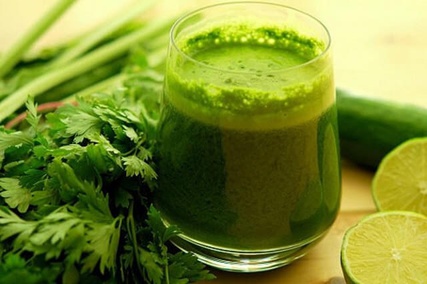A few weeks ago, I told you about thepositive effect of vitamin C on age-related macular degeneration (AMD). However, when your immune system is weak, this is also the vitamin to focus on. In fact, in this period conducive to microbes and winter diseases that encumber us, vitamin C is THE vitamin that we need in priority. Indeed, it contributes to the proper functioning of the immune system.
Also known as ascorbic acid, vitamin C has the ability to neutralize free radicals and thus protect the cells of our body. Therefore, it has the capacity to naturally strengthen our immune system by allowing a greater resistance to infections, whether viral or bacterial.
Nature offers us in this autumn period, fruits and vegetables rich in this vitamin of health. Let's trust nature, it always brings us the food we need.
- 200 mg of vitamin per 100 grams of freshly cut blackcurrant or parsley (not the dry kind you find in the grocery store)

- 80 mg of vitamin per 100 grams of raw red peppers
- 100-150 mg per 100 grams of cooked red peppers, raw green peppers and also raw black radish
- 70-100mg per 100 grams of kiwi fruit

- 50-60mg of vitamin C per 100 grams of cauliflower, red cabbage, Brussels sprouts or broccoli. Cabbages are very present at the beginning of autumn, consume them preferably raw to benefit from the benefits of vitamin C - or opt for a low temperature steam cooking.
- Don't forget the orange which is rich in it with its 53 milligrams for 100 grams of orange.

- You will also find a significant amount of vitamins in offal.
What are the recommended dosages?
The recommended dosages are confusing. It turned out that leading scientists do not always agree on the doses to be taken on a daily basis. However, let's understand that vitamin C is absolutely not dangerous or toxic because there is no such thing as overdosing. The surplus will then be eliminated by urinary tract. The only risks would then be an increased evacuation by the stools by provoking an unpleasant diarrhoea.
We recommend then a dose of 2 g daily - in case of weak immunity- of liposomal vitamin C because it offers a state of general well-being and a good resistance of the body against infections. Consumption of 2 to 4 g per day results in improved physical and intellectual performance, as well as increased longevity.
What type of vitamin should I take?
Beware of all the tubes of vitamin C that are sold in organic shops or even in the more traditional supermarkets. These are synthetic vitamins! Very often, the tablets are simple pills composed mainly of sugars (refined) with minimal addition of vitamin C. When in the morning you take a tablet that is composed of more than 45% of sugars, do not be surprised to suffer then the inconveniences at the level of your glycemia.
We will not name any brand in this article but some products have an initial composition close to this one.
Glucose syrup 46.1%, sugar 24.8%, water 19.2
Obviously, ban these products from your pharmacies, or put them directly in your sweet cupboards. They do not bring any benefits.
Note then that liposomal vitamin C is preferable because it is then encapsulated in a lipidic envelope which will resist the acid attacks of digestion, but also be easily transported in its entirety to the cells that need it.
Making the right choices when it comes to food supplements is really important because our body needs to be offered the best. If your dietary intake of nutrients is not sufficient - due to the poor quality of the food you eat, whether it is non-organic or industrial - do not hesitate to supplement your diet with quality products that will provide you with the support you need for good health.
If you are a smoker, on oral contraceptives, under intense stress or if you are a pregnant or nursing woman, the need for vitamin C is increased.



